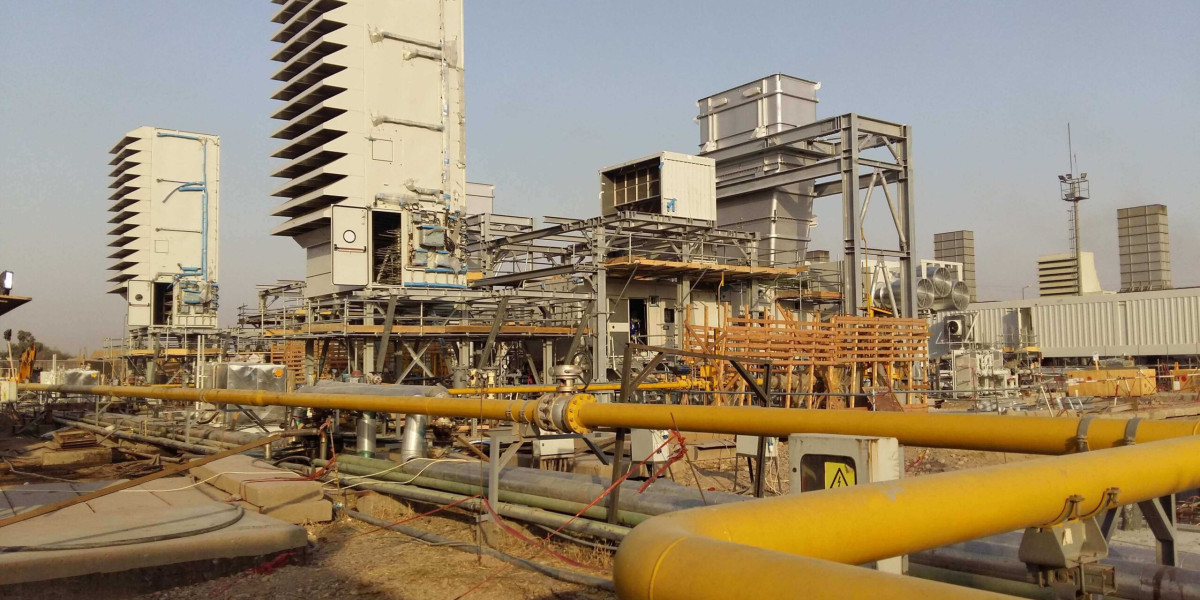Power Projects Baghdad: Energizing the Capital for a Sustainable Future
As Iraq continues to rebuild and modernize its infrastructure, power projects in Baghdad have taken center stage. The capital city, home to more than 9 million people, has seen growing energy demands over the past decade—driven by rapid urbanization, population growth, and expanding industrial activity. In response, both the public and private sectors are investing in large-scale power generation and distribution initiatives to ensure a stable and reliable electricity supply across Baghdad and surrounding regions.
From new thermal and gas-fired power plants to solar energy initiatives and grid modernization programs, power projects Baghdad are crucial to Iraq's vision of achieving energy self-sufficiency and economic resilience. These projects not only aim to improve electricity access but also address issues such as frequent blackouts, outdated infrastructure, and transmission losses, which have historically plagued the city's power system.
Current Energy Landscape in Baghdad
Baghdad's energy grid, like much of Iraq's, was significantly damaged during decades of conflict and underinvestment. Although the government has made efforts to restore and expand the power infrastructure, challenges remain. The demand for electricity in Baghdad far exceeds supply during peak summer months, often leading to load shedding and overreliance on expensive private generators.
To bridge this gap, Iraq’s Ministry of Electricity has launched several initiatives to expand generation capacity, upgrade transmission lines, and attract international investment in the power sector. These include partnerships with foreign companies, engineering procurement and construction (EPC) contracts, and public-private partnership (PPP) models designed to accelerate development.
Key Power Projects in Baghdad
Several ongoing and recently completed power projects are reshaping Baghdad’s energy future:
- Combined Cycle Power Plants
One of the major trends in Baghdad’s power sector is the shift from simple gas turbines to combined cycle systems, which improve fuel efficiency and power output. These plants utilize both gas and steam turbines to generate electricity, significantly reducing fuel consumption per megawatt. - Solar Energy Projects
To diversify its energy mix and reduce reliance on fossil fuels, Iraq has signed agreements with international firms to develop solar power facilities. Several pilot projects are being explored in Baghdad to integrate solar energy into the urban grid, contributing to a cleaner and more sustainable energy future. - Transmission and Distribution Upgrades
Beyond generation, improving Baghdad’s power transmission and distribution infrastructure is a priority. Projects include modernizing substations, deploying smart meters, and reinforcing high-voltage transmission lines to reduce technical losses and improve service quality. - Rural Electrification Around Baghdad
Expanding electricity access to rural communities on the outskirts of Baghdad is another important objective. This includes the construction of feeder lines, small-scale generation units, and mini-grid systems to bring power to underserved areas.
The Role of EPC and Supply Chain Partners
Executing complex power projects requires specialized expertise in engineering, procurement, and construction. EPC contractors are responsible for delivering fully functional power facilities—from design and equipment sourcing to civil works and commissioning. Strong project execution, regulatory compliance, and on-time delivery are critical in Baghdad’s evolving power sector.
An essential aspect of these projects is the procurement of high-quality electrical components such as turbines, transformers, switchgear, cables, and control systems. Reliable procurement and supply partners ensure that materials meet technical specifications and are delivered without delay—a key factor in keeping projects on schedule.
The effective completion of power projects in Baghdad is largely due to MUE Group, a pioneer in the provision of EPC and procurement solutions for energy and infrastructure projects. With deep knowledge of local regulatory environments and a global sourcing network, MUE Group offers end-to-end services that include technical procurement, logistics coordination, and project support. Their ability to deliver quality materials on time and within budget makes them a trusted partner for power developers in Iraq.
Economic and Social Impact of Power Projects
Beyond infrastructure improvements, power projects in Baghdad have significant socio-economic benefits. They create thousands of local jobs during the construction and operational phases, boost investment in manufacturing and services, and contribute to overall quality of life by ensuring reliable electricity access for homes, hospitals, schools, and businesses.
Moreover, a stable power supply is essential for attracting foreign direct investment (FDI) and fostering economic diversification. Improved electricity reliability reduces operational costs for industries and enhances productivity, which is crucial for Baghdad’s role as a central economic hub in Iraq.
Future Outlook
With Iraq’s National Development Plan emphasizing energy security and sustainability, the momentum behind power projects in Baghdad is expected to continue. Investments in renewable energy, smart grid technology, and energy efficiency programs will complement traditional infrastructure, positioning Baghdad as a leader in Iraq’s energy transition.
However, challenges remain, including regulatory reform, fuel supply issues, and the need for long-term financing models. Continued collaboration between government authorities, international developers, EPC contractors, and supply chain partners will be essential to overcoming these hurdles and delivering long-lasting impact.
Conclusion
Power projects in Baghdad are more than just infrastructure investments—they are a foundation for economic growth, social development, and national stability. As Iraq looks to rebuild a resilient energy sector, Baghdad is emerging as a focal point for innovation and progress. Companies like MUE Group are instrumental in turning these ambitions into reality, offering critical expertise in procurement and execution that enables timely and efficient project delivery. With sustained effort and strategic partnerships, Baghdad’s energy future looks brighter than ever.






